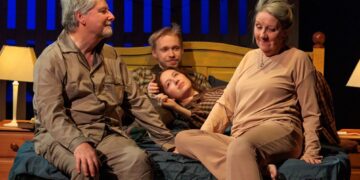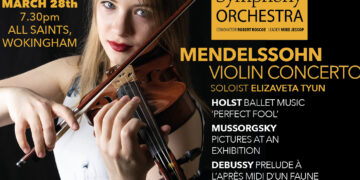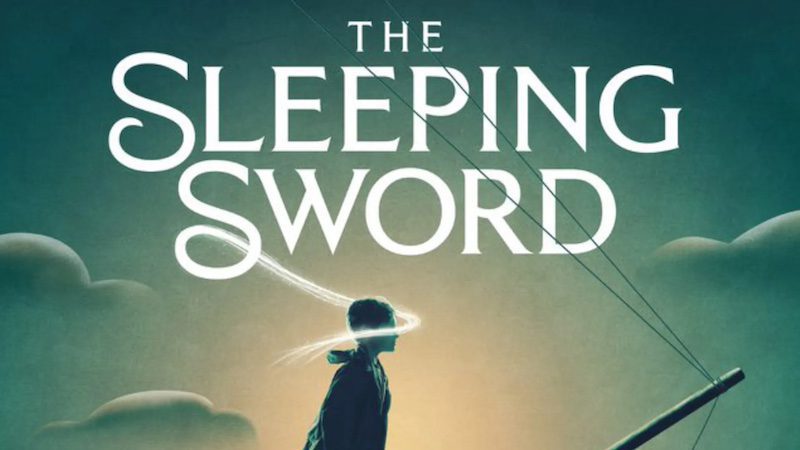What would you do if a terrible accident robbed you of your vision?
This is the question at the heart of The Watermill’s production of Michael Morpurgo’s “The Sleeping Sword”, adapted by Tatty Hennessy.
Unfortunately, with the production run ending on 5th November, it’s not a question you’ll be able to answer for yourself – but with a touring production scheduled to bring the show to schools in Berkshire and Wiltshire, it is a question your children will get to answer.
And by golly, will they enjoy the show.
The enjoyment comes partly from the source material. The core of Morpurgo’s novel is preserved in this adaptation; Bun (Aarian Mehrabani) has an accident while jumping off a pier on the island of Bryher with his friend Anna (Tika Mu’Tamir). Adjusting to his new life is complicated by the fact that his chief pleasure in life is reading about the adventures of King Arthur – and how do you do that (let alone navigate your house) when you can no longer see?
The solution comes via Anna, who buys him an audiobook version of the tales so that he can continue to enjoy – and be inspired by – stories of the legendary king. Their growing bond, and Anna’s guilt over the fate that has befallen her friend, provides the story’s strong emotional core – made all the more important when SEN teacher Viv (Kirsty Ferriggi) suggests that Bun leaves his beloved island to join a school for visually impaired children on the mainland.
But the audiobook doesn’t simply give Bun an escape from his troubles; it in turn inspires him to record his own story, in audiobook form, in front of the audience. And it’s here that the production becomes something truly spectacular, because this format allows it functions as something that anyone can fully participate in and enjoy.
Anyone with an hearing impairment, for example, can access the play through seeing the script being projected onto a rear screen – yet this is in no way distracting or tokenistic, because the text is animated to reflect the words. When Bun describes rowing out to sea, for example, the text flows across the screen like water.
Likewise, those with a visual impairment could experience the play in the same way I would listen to an audiobook at home – for the stage allows the actors to create their own soundtrack in real-time. Again, when rowing out to sea, dipping a mug into a bucket of water over a microphone does an incredible job of establishing an atmosphere. So much so that I opted to experience a good third of the production with my eyes closed, and can honestly say that I still found it to be as transporting and affecting as some of the best radio dramas I’ve listened to.
Impeccably acted, astonishingly moving, and giving you an insight into what it’s like to live with visual impairments without ever feeling like “an educational play” – this is quite possibly the best thing I’ve seen all year.
Produced by The Watermill Theatre (https://www.watermill.org.uk/the_sleeping_sword), directed by Lucy Jane Atkinson.














































